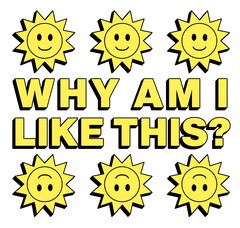We don’t always pick up our phones with intention—sure, there are alarms to snooze, texts to respond to, and emails to worry about, but still we spend a lot of time in the casual thrall of screens. Who among us hasn’t spent a little unintended time on our devices? An hour burned watching TikTok recipe videos that you don’t even plan on recreating; a late night extended by scrolling through Zillow listings in a city you don’t even want to live in; a train ride dedicated to seeing what’s actually up on your IG Explore tab; an afternoon in the park split between reading an Actual Book and figuring out who’s been subtweeted in a “Part 1/???” thread—it’s all fun and games! Until, at least, that weekly screen time report rolls in. In fact, according to Sarah Domoff, an associate professor of clinical psychology at Central Michigan University, thinking literally about screen time as the number of hours we look at our phone and attempting to attack that figure can be counterproductive. “Dive into what you can change on a small level that will have a big impact—that will be more immediately reinforcing than trying to make huge, sweeping changes in your hours of screen time,” Domoff told VICE. “We want to set goals that we can reach, because those will be the ones we maintain.”Need help evaluating how your screen time makes you feel? Walk yourself through a few simple questions to clarify what exactly you get up to on your phone, and how it really makes you feel—both off and online.First things first: It’s really important to remember that there is no single number where the amount of time you spend looking at a screen turns from healthy and normal to toxic and harmful. As such, if the number you see on a screen tracking app wigs you out because it feels big, it’s probably best to just hide those notifications if that’s the only problem you’re having. “Excess isn't objective,” Alter told VICE. “Some people thrive on no screen time; others need an hour or two to connect and get work done; others are quite happy spending four or five hours a day gaming. ‘Excessive’ [screen time] means that your screen time is encroaching on other important activities, and robbing you of well-being.”Domoff said it can also be helpful to remember that apps, from social media apps to the productivity apps aimed at blocking social media, are usually designed to be used for as much time as possible. “People should have some grace for themselves, because you’re not the only agent here,” Domoff said. “These apps are designed to make us want to come back and to keep going back. Learning about what goes on behind the scenes can help people see that, ‘Oh, [the app developers] did that so I would stay on here a little bit longer, it's not just because I'm failing in my self control.’”Take the time to think about what spending time on your phone feels like to you—and don’t judge yourself if you actually enjoy it. “It’s fun to look at Instagram or TikTok, it’s enjoyable—and it’s not a binary of ‘you did screen time because you're not doing all these other good things.’ You can do both! You can drink soda and eat a salad!” Notopoulos said. “I think there’s this argument that’s very ‘grandparents at Thanksgiving in 2012’ saying, ‘Look at all these kids on their devices at the dinner table. Back in my day, we just talked to each other!’ That feels very outdated and irrelevant, but the ghost of that argument is still so stuck in our heads that we still believe that we're missing out on some real, amazing life by looking at our phones.”Honestly, does a casual scroll through Facebook on your lunch break or a little Pinterest board reorganizing while waiting for your partner to get home after the workday constitute a life devoid of action and interaction? Not at all! “The concept of ‘real life’ there is like those Instagram posts where a sexy babe is reaching her hand back and holding the photographer’s hand and they’re in Thailand or jumping in the ocean or something,” she said. “Like, they're imagining that that's the alternative: If you weren't looking at your phone, you could be doing thisI! And it's like, no, actually, you probably just watch basketball or something. You would be doing the same shit.” So we’ve established that social media isn’t an automatic evil, but if the number of hours in your screen time report still make you feel a little uncomfortable, Domoff recommended clicking through and taking a look at what apps are occupying most of your screen time and when you’re specifically using them.“When we consider how social media and our phone use impacts us, we have to consider what we’re seeing, how we engage with the content, and when we engage with social media,” Domoff said. “Time is important, time matters, but that’s not the only part of this picture.”If you’re consistently choosing your phone over personal responsibilities (work, work, school work, childcare, or self care like exercise, cooking, cleaning, grooming) or opting for screen time over face-to-face social contact, then something is definitely off, and it may be worth unpacking why with a professional. But curtailing the sheer amount of time you spend on your phone won’t necessarily solve those problems, and it won’t magically fix your relationship to technology either.“Say you’re feeling pretty isolated, and you're trying to reach out to someone and build a connection, and you're spending all these hours on social media, and yet you still don't feel like you're getting your social needs met—that's incongruence between behaviors and expectations, right?” Domoff said. “That should tell you, ‘OK, there's something not right here, what can I do differently that will help me feel connected to someone?’ It may be not through one social media app, it may be through a different platform, it may be through doing a video chat, or FaceTime. There's so many opportunities for different ways to connect, and you have to find the one that's right for you.”Alter suggested setting up a schedule to take you away—mentally and physically—from your phone to minimize the urge to pick it up. “The best thing you can do is to carve out chunks of screen-free time,” he said. “Say, dinner time, the hour before bed, the hour after you wake up, maybe a few hours on the weekend. Create physical distance between the phone and you so you aren't tempted to use it.”Domoff said that in her own life, she’s found success by setting communication boundaries and sharing those boundaries with the people in her life—that way, she’s accountable for maintaining them. “I have a disclaimer on my email that basically says that I don't expect a response in the evenings or on weekends,” she said. “If I email you back at 11 o'clock at night, that's my choice to do that. I don't expect you to change your schedule to respond to me on my time.” Setting up expectations of a longer response time can be as easy as letting friends know you’re not on top of texts right now or clueing in your close friends IG story that you’re taking a break from the internet for a little while—that way they know not to reach out unless it’s an emergency, and they have permission to make fun of you if you break your own rules.Notopoulos recommends engaging with the internet as a source of sociality and entertainment and cutting out anything that doesn’t serve those purposes. “I purposely avoid following tons of political reporters—not because I don't care about political news, I just don't want to see their tweets, because that for me is a bad, unenjoyable experience,” she said. “You have to not follow stuff that sucks and follow good stuff! I think that's most people's experience: They go on Twitter like, ‘Yeah, that's a place where I see a bunch of jokes, funny things that crack me up.’ If you’re obsessively 24 replies deep in [redacted sensitive journalist]’s mentions, then yes, you're gonna have a bad experience—but you did it to yourself.”That’s not to discount the power of a well-nourished hate follow; just that if the things you spend time engaging with on social media leave you feeling anxious, scared, worried, self-conscious, or angry, those feelings are probably taking up undue space in your day. If so, you might want to step back and focus on curating a feed that’s focused on good vibes only.Follow Katie Way on Twitter.
Advertisement
“Most people vastly underestimate how much time they spend [on their phones],” Adam Alter, a professor of marketing at New York University and author of Irresistible: The Rise of Addictive Technology and the Business of Keeping Us Hooked, told VICE. “I guessed 90 minutes a day before downloading an early screen time app, and turned out to be spending three or four hours a day on my phone.” That’s where “productivity apps” that block certain websites or restrict your phone time and guerilla fixes, like moving the apps you visit most to a place that’s harder to swipe to or the “brain-cleansing” dopamine fasting fad, come in—only to be deleted or worked around as soon as the urge to scroll hits. But, major caveat: Just because you look at the internet sometimes—even a lot of the time!—doesn’t automatically mean you’re an unproductive hermit, missing out on the rich tapestry of experience that is “real life.” Depending on your attitude, it’s actually totally fine to have fun online, a stance that BuzzFeed News tech reporter Katie Notopoulos will defend to the death (with phone in-hand, of course). “Getting social experiences through your phone can be a richly rewarding thing that makes you feel good,” Notopoulos told VICE. “We crave social connection, and even if those social connections online are not as deep as having an hour-long phone call with your best friend, they're still meaningful, and you can’t discount the convenience. For a lot of people, it's not like the choices are ‘Take a walk outside, or look at Instagram,’ the choices are more like ‘Stare at the wall, or look at Instagram.’”
Advertisement
Ditch the timestamp worries
Advertisement
Consider what screen time means to you
Advertisement
Dig into when and how you log your screen time
Advertisement

